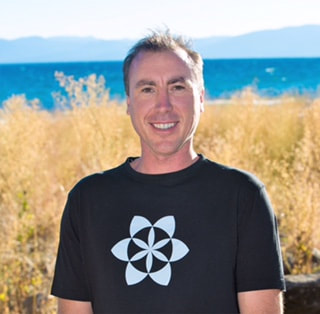|
“There is no better time than the autumn to begin forgetting the things that trouble us, allowing them to fall away like dried leaves.” ~ Paul Coelho As we enter into the darkest time of the year, it is worth taking a moment to recognize how the seasons are a reflection of the larger cycle of life. Spring, for example, is analogous with birth and new beginnings. Summer is like the prime years of your life, autumn the later years, and then winter comes at the end, representing death. Of course, winter is always followed by spring, the return of the light and the rebirth of life. That’s why you see so many skeletons, ghosts and gravestones during Halloween. It’s because we are celebrating the arrival of the darkness. The days will only get darker between now and the winter solstice and, rather than resisting this change, Halloween is how we embrace the darkness- recognizing that death is an essential part of the natural cycle.
Fall is also the time of year where, like a deciduous tree, you have the opportunity to let go of that which no longer serves you. One way to do this is to explore and embrace your own darkness. If you carry emotional baggage like anger and resentment that is weighing you down and limiting your ability to enjoy life, now is a good time to honestly reflect on that. How much longer do you really need to suffer on someone else’s behalf? As the saying goes, holding on to anger is like grasping a hot coal in your hand with the intention of throwing it at someone else. In the end, the only person that gets burned is you. Similarly, stewing in resentment is like drinking poison and expecting the other person to suffer the consequences. So, take some time to explore your own darkness this Halloween. What you find might terrify you, but that’s kind of the point. Besides, you can’t let go of something without first recognizing what it is that you’re still holding onto.
1 Comment
“It is only by grounding our awareness in the living sensation of our bodies that our real presence can awaken.” ~ G.I. Gurdjieff Life can sometimes be overwhelming. Thoughts and emotions have a way of feeding off each other, often spiraling out of control, resulting in panic, anger, sadness, or confusion. As you probably know, the best way to prevent this is to ground yourself. But what does being grounded even mean? A good way to understand grounding is to imagine an ungrounded electrical circuit. It will function just fine but, if a surge of electricity occurs, the circuit will get hot, begin to spark, and eventually melt. By grounding a circuit, you create a pathway for excess energy to be sent into the earth before it can do any damage.
What does this have to do with you? Like an electrical circuit, you also have energy running through your system. Although your physical body exists in solid form, your thoughts and emotions exist as energy. Your sense of self, memories, fears, hopes and dreams all exist as thoughtforms, which are essentially electrical currents running through your nervous system. When your thoughts and feelings begin to overwhelm you, it’s like an ungrounded circuit getting too hot. Maybe that’s why reaching an emotional breaking point is commonly referred to as having a meltdown. The trick is to ground your excess energy before it has a chance to do any harm. There are many proven ways to ground yourself, including walking barefoot on the earth, eating root vegetables, meditating, and taking mineral salt baths. You can also imagine a grounding cord that extends from your tailbone down to the center of the Earth. However, in line with this week’s quote, one of the most effective ways to be grounded is to bring your awareness into your physical body. You can sometimes get so identified with the energetic, metaphysical aspect of your being that you completely forget about your body. To remedy this, focus your awareness internally, all the way down to your bones, the most solid part of your being. The next time you feel your mental/emotional energy spiking, simply ground into your body. By bringing your awareness into your body, you create an anchor to something stable within, grounding your energy into your physical being before it becomes too much to handle. By grounding into your body, you can remain calm and centered on the inside regardless of what is happening on the outside. “Patience is not the ability to wait, but the ability to keep a good attitude while waiting.” ~ Joyce Meyer Are you good at waiting? If so, then congratulations! You have conquered perhaps the most challenging aspect of human existence. To master the art of patience is really to master the art of life. That’s because impatience depletes your energy, robbing you of your sense of humor and your capacity to experience joy in the moment. While everyone knows that patience is the key to waiting, most people hate waiting more than anything else. What can you do to become a more patient person? It begins by understanding what patience really is.
As Joyce Meyer explains in this week’s quote, patience is not so much your ability to wait as it is your ability to regulate your emotions while waiting. Next time you are feeling impatient, pay attention to how your body feels. If your stomach is in knots and your chest is tight, it can be very difficult to breathe. The same is true if your chin is tucked and your jaw is clenched. With all this inner tension, it’s no wonder that waiting can feel so awful. When you are impatient, every minute that goes by feels like torture. However, you are not only the victim that has to endure this torture- you are also the torturer. The secret to being patient is realizing that tensing up and holding your breath doesn’t actually make time speed up, it just makes you feel bad inside as time goes by. Compared to impatience, patience actually feels pretty nice. Instead of a heavy, constricted experience- as if the walls were closing in around you- patience feels light and expansive. So, stop tying yourself in knots every time you have to wait. Impatient people want to move on to the next moment so badly, they completely forget to enjoy this one. Patient people, on the other hand, are just happy to be here, regardless of how long things take. |
Like what you are reading? Sign-up here for our weekly newsletter featuring a new inspirational blog every Wednesday.
About The AuthorNick Hughes is a massage therapist, yoga instructor and co-owner of Well Being. Influenced by the ideas of Alan Watts, Eckhart Tolle, Ram Dass, and Deepak Chopra, Nick presents his unique take on human existence with the goal of helping others live a happier life. Archives
July 2024
Categories |





 RSS Feed
RSS Feed